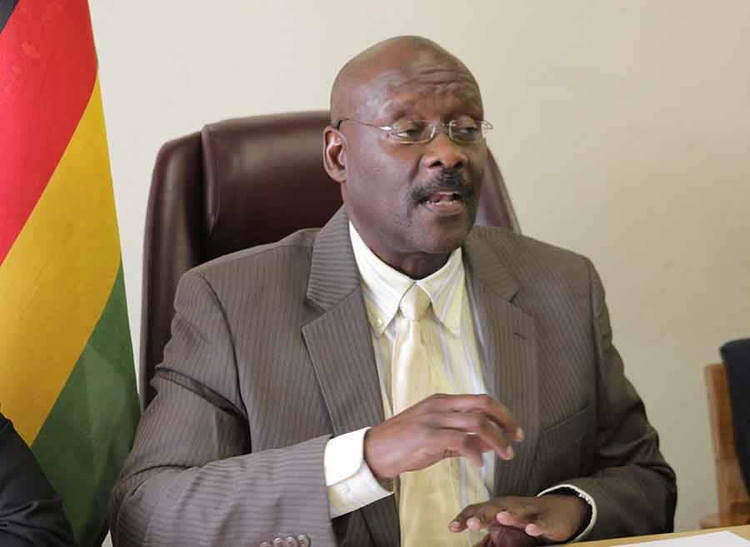
The Sunday Mail

Tendai Chara
The much-awaited International Conference on Aids and Sexually Transmitted Infections in Southern Africa (ICASA), the biggest Aids conference in Africa, kicks off in Harare this morning with delegates expressing confidence that the conference’s anticipated objectives will be achieved.
Over 10 000 guests are expected from nearly 150 countries. The conference will be held from tomorrow up until the 4th of December.
All eyes will be on Zimbabwe as more than 200 journalists from across the globe cover the event, which will be beamed across the world.
This year’s conference runs under the theme “Aids in Post 2015 Era: Linking Leadership, Science and Human Rights”.
The world’s leading scientists, policy-makers, activists, government leaders and civil society representatives will engage in debate on how to achieve the conference’s objectives. Delegates will comprise researchers, scientists, clinicians and other health care providers.
According to the ICASA website, the conference – the 18th ever – is an opportunity to renew global commitment to the elimination of HIV/Aids by drawing attention to the fact that achievements made so far are threatened by the global economic downturn.
Efforts are being made to achieve an Aids-free Africa. Africa has one of the largest population of people living with HIV/Aids in the world.
The conference will be chaired by Dr Ihab Abdel Rhaman Ahmed, an epidemiologist and President of the Society for Aids in Africa (SAA).
Dr David Parirenyatwa, Zimbabwe’s Health and Child Care Minister, is co-chairperson.
Among some of ICASA’s objectives is the need to increase African leadership and ownership as well as investment in financing to support the continental health response and also to strengthen the interaction between the public health, science and human rights approach in the control and elimination of the HIV/Aids and associate diseases.
ICASA organisers also seek to promote the development and scale-up of evidence-based interventions for HIV/Aids and associate diseases in the post 2015 era as well as to promote inter-sectoral achievements in the AIDS response and to strengthen the partnership among governments, civil society, and development partners.
Some of the key speakers is Michel Sidibe, the executive director of UNAids and under-secretary general of the United Nations.
Mr Sidibe is known for his vision on zero new infections, zero discrimination and zero Aids-related deaths.
Dr Matshidiso Moeti, a public health veteran and the first woman World Health Organisation director for Africa, will be among the opening speakers.
Ms Leila Pakkala, the Unicef regional director for Eastern and Southern Africa, will also deliver a keynote speech.
Dr Babatunde Osotimehin, Executive Director of the UN Population Fund, completes the line-up.
Dr Osotimehin is a global leader in public health, women’s empowerment and young people, particularly focusing on monitoring human rights, including sexual and reproductive health.
Sekuru Friday Chisanyu, a board member of the Traditional Medical Practitioners Council, will present a paper entitled “The Role of Traditional Medicine in the Treatment of Sexually Transmitted Infections”.
Sekuru Chisanyu said this was one of the most important gatherings for traditional healers.
“The World Health Organisations and the United Nations, among other organisations, confirms that 80 percent of people in Sub-Saharan Africa depend on traditional medicine. As a traditional healer, this is an important conference,” Sekuru Chisanyu said.
Writing on the ICASA website, Dr Parirenyatwa said the conference was a platform for stakeholders to share the latest scientific advances in HIV/Aids research.
“I would like to warmly invite you to this biennial International Aids conference, which is a premier gathering for those working in the field of HIV, leaders, people living with HIV and others committed to ending the pandemic. ICASA is a tremendous platform for researchers from all around the globe to share latest scientific advances in the field, learn from others experiences and develop strategies for facets of a collective effort to prevent and treat HIV,” Dr Parirenyatwa wrote.
According to Dr Parirenyatwa, Zimbabwe, as one of the countries that has been severely affected by the pandemic, has a long history in the response to HIV and Aids.
The country has, however, recorded some internationally acclaimed milestones particularly the reduction of both HIV incidence and prevalence and scaling up access to treatment.
Such achievements were recorded under difficult conditions, with funds generated through domestic financing for HIV through the Aids levy. The Aids Levy has now been recorded and shared as an international best practice.
Dr Parirenyatwa says the conference will be a learning curve.
“We are confident that ICASA delegates will benefit from our efforts and challenges as well as those of the entire African region as we move towards ending Aids by 2030.
“The response of HIV and Aids has been closely linked with efforts to end co-morbidities such TB and cancer as well as other sexually transmitted infections which will be addressed at the conference,” wrote Dr Parirenyatwa.
Workshops, plenary sessions, satellite symposia, exhibitions and cultural activities have been lined up. The conference will also offer opportunities to both commercial and non-commercial organisations to showcase their products and services to the world’s leading HIV/Aids professionals.
As of Friday, more than 56 exhibitors had confirmed participation.
A daily conference news bulletin reviewing all plenary sessions and giving summaries of major activities will be available.
One of the conference’s highlights will be The Positive Lounge, which is designed as a place of rest, support and networking for HIV-positive conference delegates.
The lounge provides an opportunity to meet and talk with other people living with HIV from across the globe in a relaxed and nurturing environment.
The tourism sector will be boosted, and Harare’s hotels and upmarket lodges are already fully-booked.



